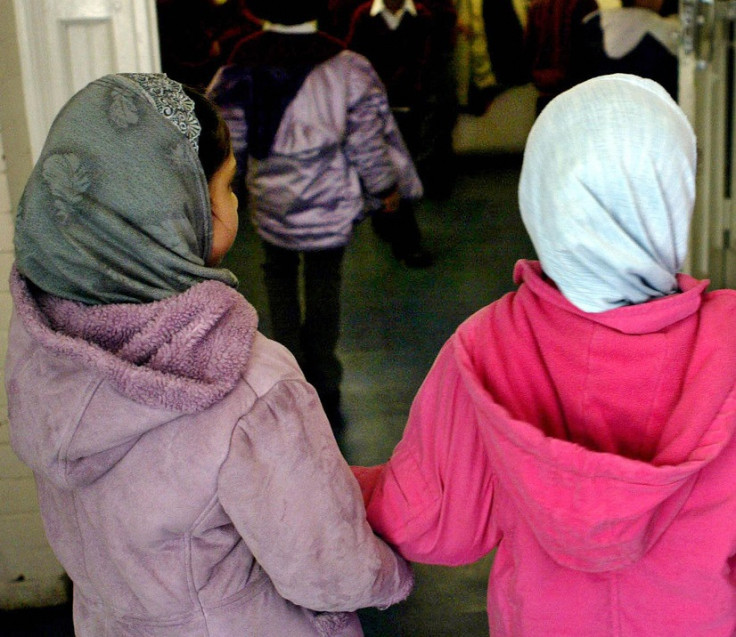Books in UK Islamic school say it's OK to beat women for refusing sex
Library books sanctioning domestic violence found by Ofsted inspectors.

Library books which sanction domestic violence and say women should never deny their husbands sex have been found by Ofsted inspectors at Islamic schools in the UK.
The texts were part of a file compiled by Ofsted of the worst examples of discrimination and sexism its inspectors had encountered.
Ofsted insiders told the Times the books and writings made for "uncomfortable reading" and that the material found was out of step with mainstream Muslim thinking.
One book found in a school library entitled Women Who Deserve to Go to Hell said it was wrong for wives to show "ingratitude to their husband" or "have tall ambitions".
It described feminism as an atheist conspiracy "driving women towards aberrant ways".
Another school encouraged pupils to read a text comparing "noble women of the East" who protect their modesty with veils with the "internally torn woman of the West" who "leaves her home to knock about aimlessly in cinemas and cafés, malls and bazaars".
Other library books saw boys and girls taught that "the wife is not allowed to refuse sex to her husband" or "leave the house where she lives without his permission".
Disobedient wives should expect to be beaten, another text added.
In a sign that the teachings were filtering down to some children, some work marked by teachers stated that women had a responsibility "only to bear children and bring them up as Muslims".
One pupil's essay argued: "Men are stronger and can work full time since they don't need to look after the children. Some people disagree that men and women are equal. Paternitity [sic] is an unconvinience [sic]."
Another pupil had written that men were physically stronger and women emotionally weaker. The pupil's worksheet was reportedly covered in approving red ticks from the teacher.
The material was found at maintained and unregistered schools as well as independent faith schools.
Ofsted insiders said they feared the texts were making their way into mainstream schools as well-meaning teachers permitted extreme forms of Islam in the belief that they were being inclusive.
The Ofsted revelations came after Amanda Spielman, the chief inspector of education, said she was determined to ensure that the education system upheld British values that "make us a beacon of liberalism, tolerance and fairness to the rest of the world".
Actively hostile environment
In a speech to educators in September, she said: "We know that even in the UK some children are being brought up in an environment that is actively hostile to some of these values.
"So the education system has a vital role in inculcating and upholding them. Most children spend less than a fifth of their childhood hours in schools and most of the rest with their family.
"If children aren't being taught these values at home, or worse, are being encouraged to resist them, then schools are our main opportunity to fill that gap."
Last month, her department successfully defended a decision to place the Al Hijrah Islamic co-ed school in Birmingham into special measures for segregating boys and girls from the age of nine.
Spielman has also ordered inspectors to question female pupils wearing hijabs if they were deemed too young. The instruction came amid concerns some as young as five were being forced to abide by strict Islamic dress codes that "could be interpreted as sexualisation".
The decision proved controversial with more than 1,000 teachers and academics signing an open letter condemning it as a discriminatory measure.
The letter read: "While a wider conversation about the sexualisation of girls in Britain's culture and economy is welcome, the singling out of Muslim children for investigation is unacceptable."
Its signatories included leading academics Prof Frank Coffield, of the UCL Institute of Education, and Nadine el-Enany, a senior lecturer in law at Birkbeck Law School.
Research by the National Secular Society in September suggested 59 of 142 English Islamic schools, including 27 primary schools, have a uniform policy that makes head-covering compulsory.






















